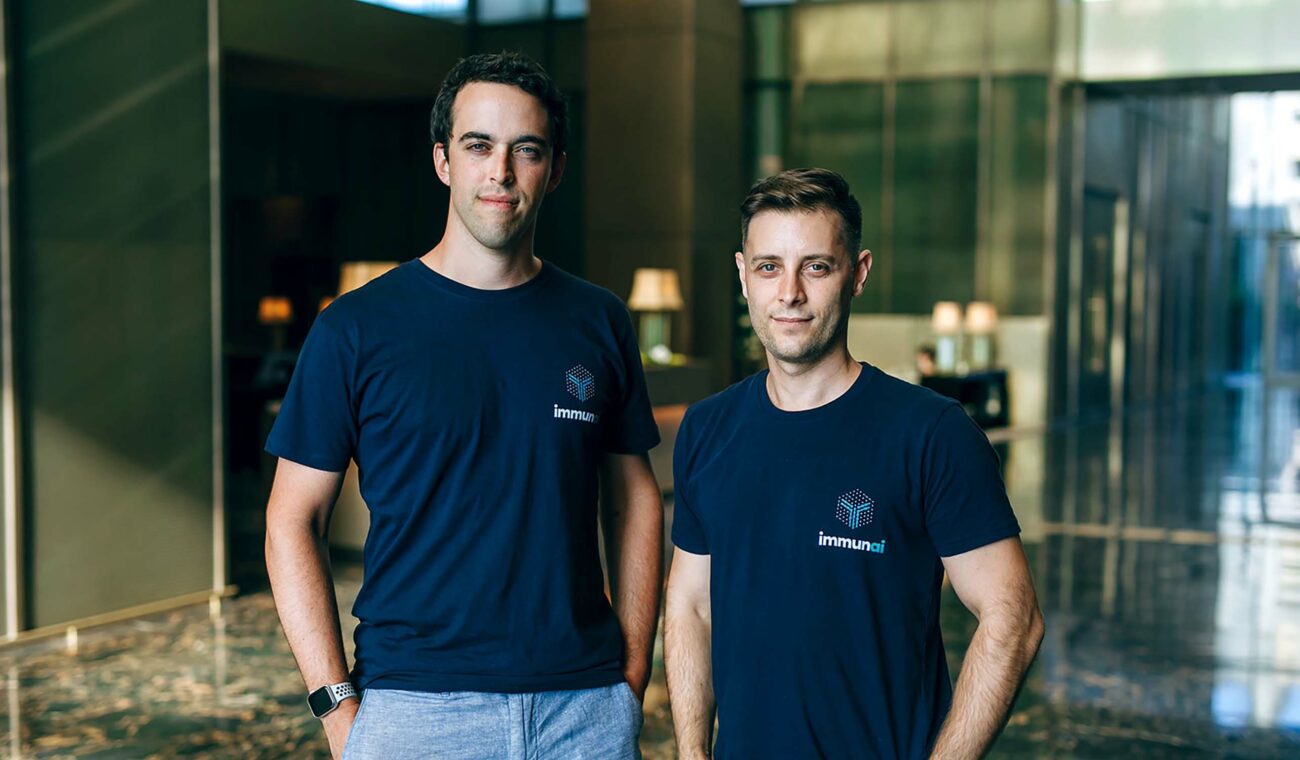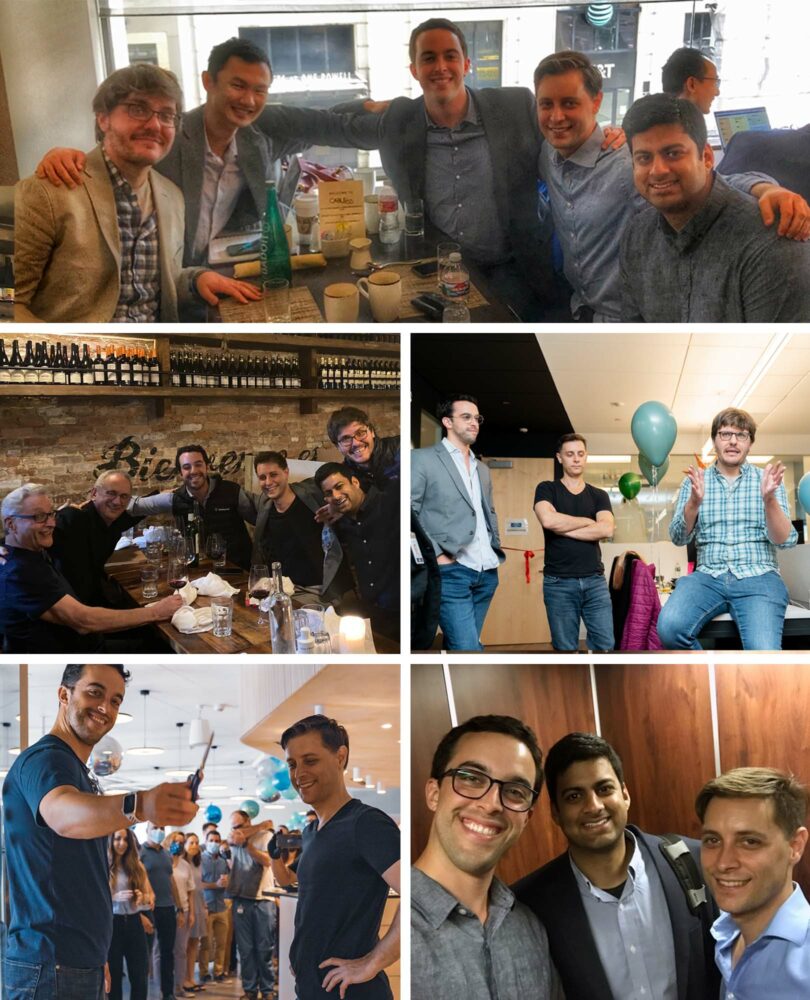Founding Story
Founding Story
Immunai’s Founding Story

INTRODUCTION
Built from the ground up as a fusion between data science and biology, Immunai is not your typical biopharmaceutical company.

Immunai was established when Noam Solomon and Luis Voloch, its Harvard and MIT-trained machine learning co-founders, had personal encounters with the need for better treatments for cancer. Driven both by family tragedies and a desire to leverage their machine learning skills to improving patient’s lives, they founded Immunai.
Inspired by its scientific cofounders, Ansu Satpathy and Danny Wells (who were at Stanford and the Parker Institute), Immunai focused on single-cell immunonics from as early as Ansu and Danny joined the team. Ansu and Danny’s groundbreaking paper used multiomic immune profiling from just six patients to elucidate a previously unknown mechanism of action of anti PD1 therapy, and demonstrated the power of the single cell, immune focused approach for elucidating critical biology. Noam, Luis, Danny, and Ansu believed Immunai could become the leader in the field and discover novel mechanisms to develop better therapeutics.
Immunai’s founding set a strong foundation for its culture, values, and boldness of its vision. The true fusion of tech (via Noam and Luis’s Machine Learning and big data expertise) and biology (via the single-cell immunology that Ansu and Danny brought) is how Immunai goes about its business today: a technology- and ML-powered, first class biotech company. They created a diverse, multidisciplinary team that is set to revolutionize drug discovery and develop the next generation of immune modulators and cures. Dan Littman, the legendary immunologist from NYU, later joined the scientific founding team and also helped cement Immunai’s immunological and scientific vision.
Why Now?
Immunai is at the leading edge of a confluence of advances in ML, single cell multiomics, and big data compute.
Immunai has integrated these disparate disciplines to develop our proprietary technology platform to map the immune system, at scale. Traditional drug discovery and development is costly, time-consuming and inefficient.
Problem 1
Average cost to develop a new drug is >$1B
Problem 2
~90% of drug candidates fail to gain regulatory approval
Problem 3
Lack of robust biomarkers make it difficult to predict treatment response or stratify patients
Problem 4
~80% of clinical trials fail to meet enrollment targets
Problem 5
Target identification and validation is complex and time consuming

Solutions
Immunai was built from the ground up to leverage recently available, next-gen tools that promise to revolutionize drug discovery & development, with a critical balance of science and tech.
solution 1
Single cell multi-omics
Enable comprehensive delineation of the state of cells to unlock biological insights. Immunai’s team has pioneers in the field such as Eleni Mimitou (DOGMA-seq).
solution 2
AMICA
Massive clinico-genomic data foundation. Immunai’s various proprietary partnerships and NEBION continue to power AMICA.
solution 3
ML-enabled functional genomics
Connect molecular perturbations to clinical context to generate deep insights.
solution 4
Experimental immunology
Systematic, ML-guided, in vitro experimental perturbations to dissect immune gene regulation
solution 5
Foundational data engineering & machine learning
Provides robust pipeline for data analysis & discovery. Immunai’s team has leading ML-engineers from Palantir, Google and other big data companies.